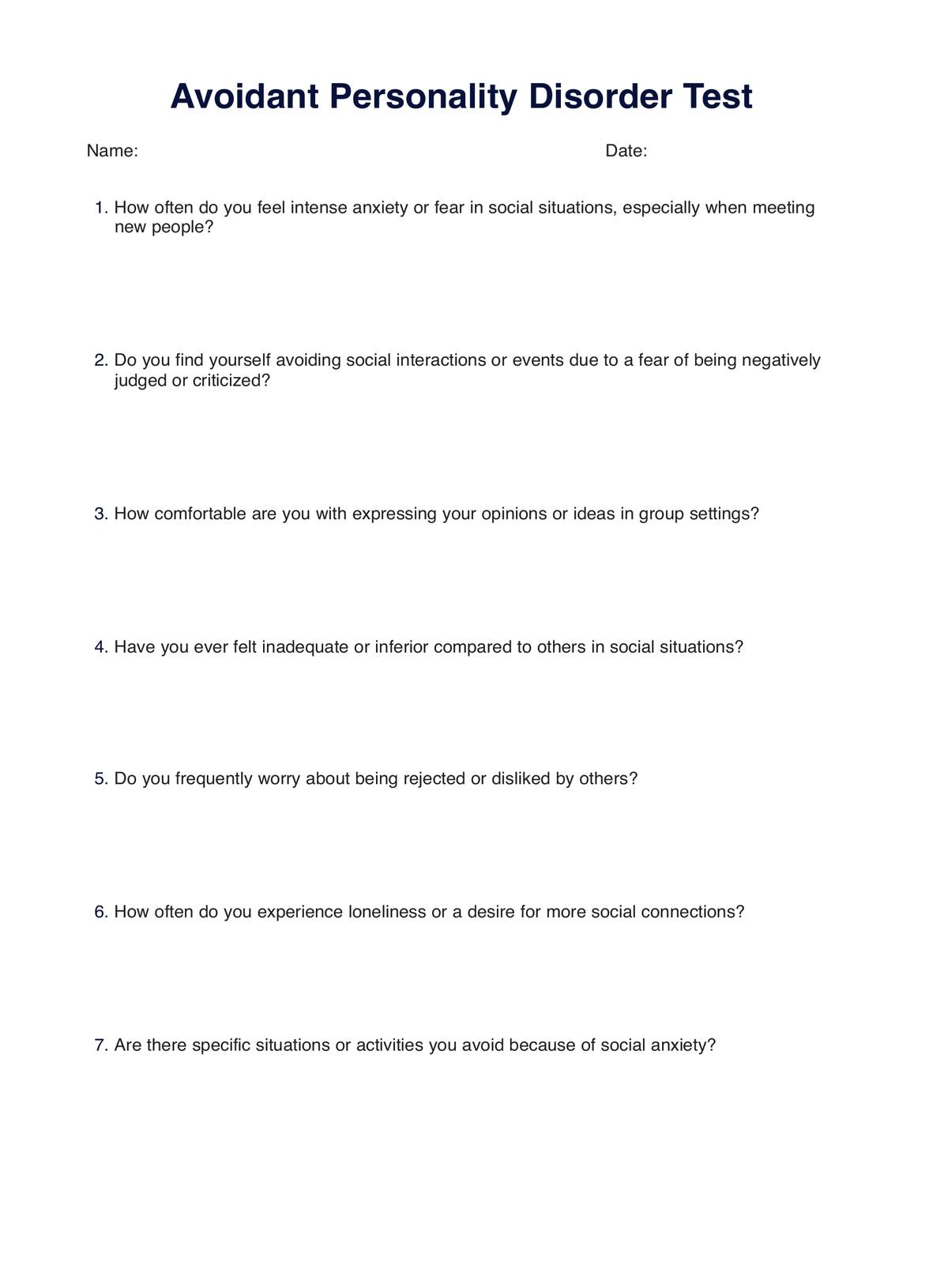Carepatron provides an easy to download and use Avoidant personality disorder test.

Avoidant Personality Disorder Test
Explore traits associated with Avoidant Personality Disorder through our self-assessment test, a self reflection tool that guides discussions with professionals.
Use Template
Avoidant Personality Disorder Test Template
Commonly asked questions
No. Self-diagnosis is risky and often inaccurate. Only a qualified licensed mental health professional can provide proper assessment and diagnosis for Avoidant personality disorder.
Quizzes can exacerbate anxiety and negative self-perception, focusing on potential symptoms without offering professional advice, guidance or support.
EHR and practice management software
Get started for free
*No credit card required
Free
$0/usd
Unlimited clients
Telehealth
1GB of storage
Client portal text
Automated billing and online payments











